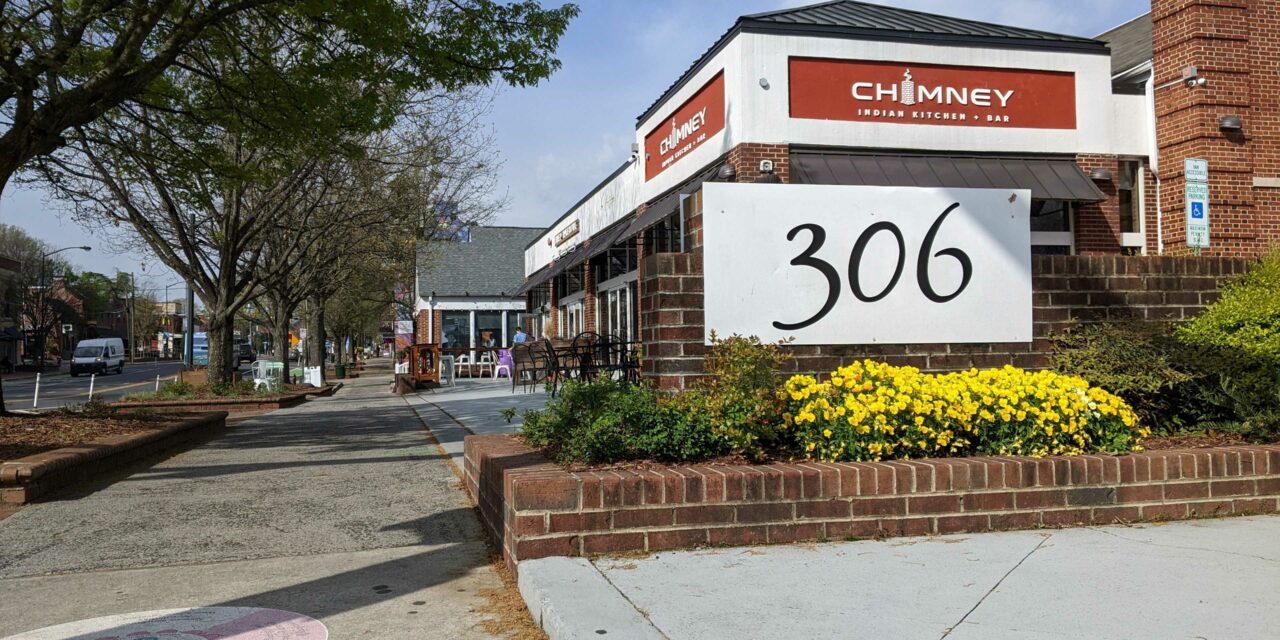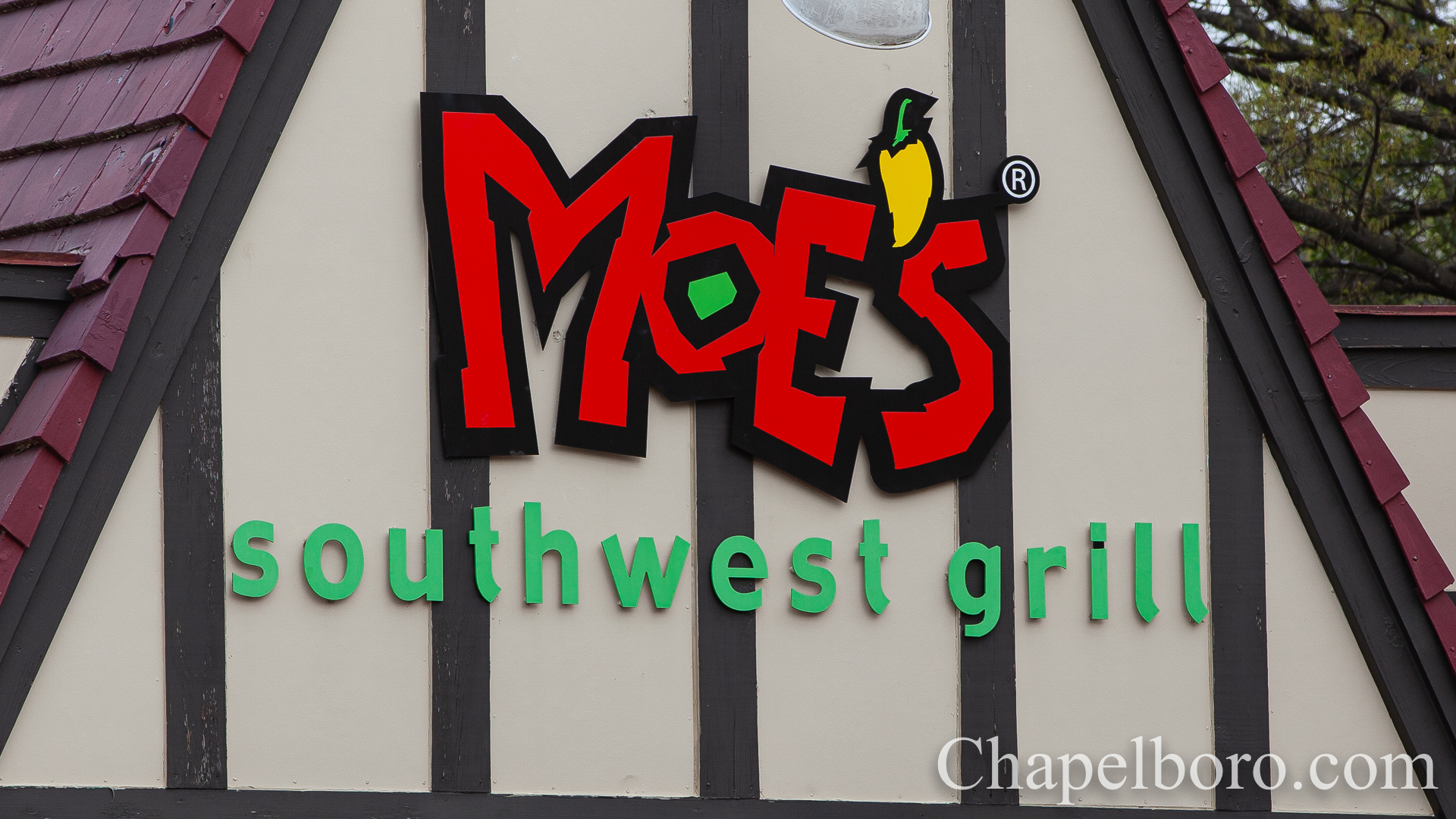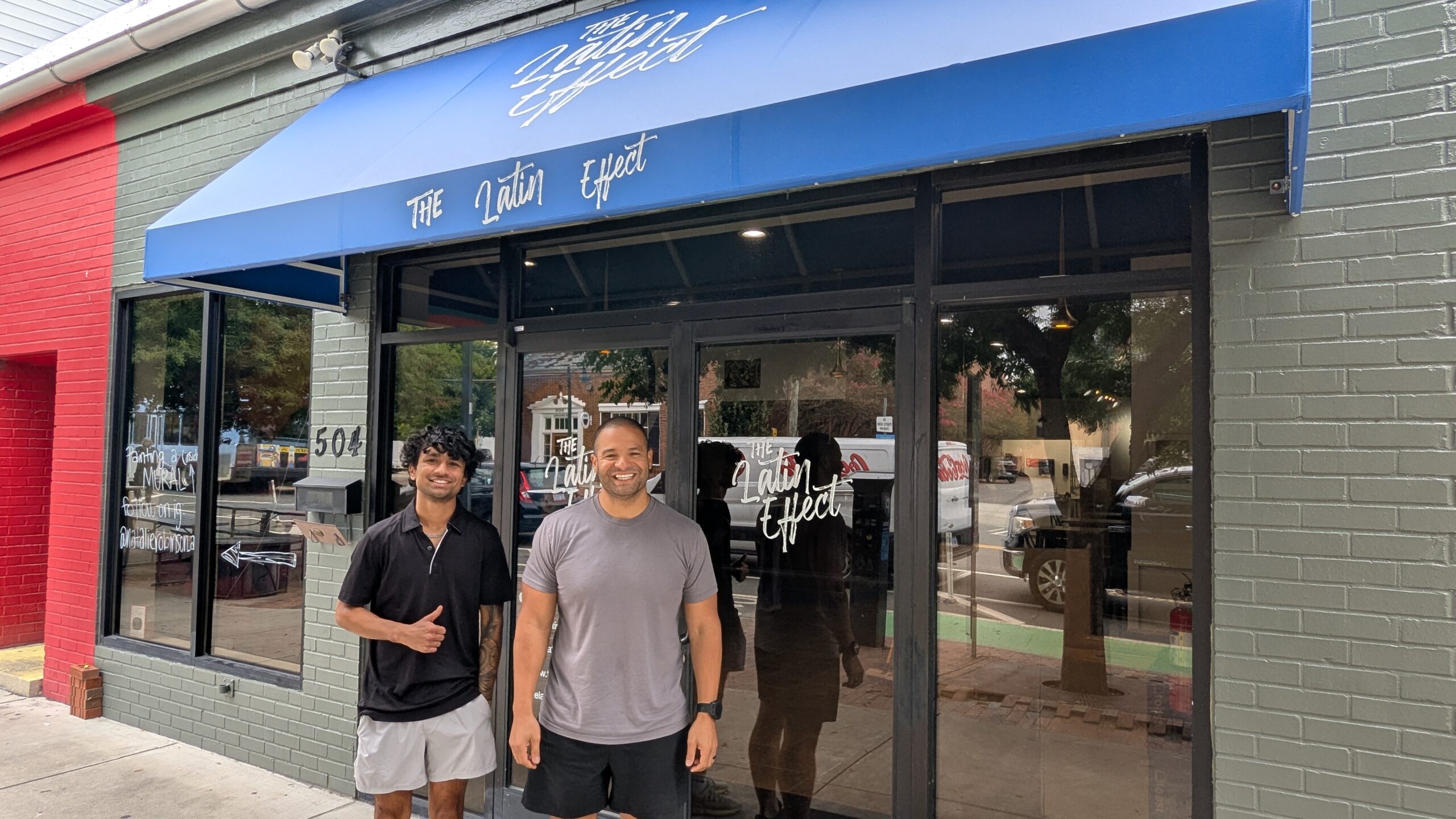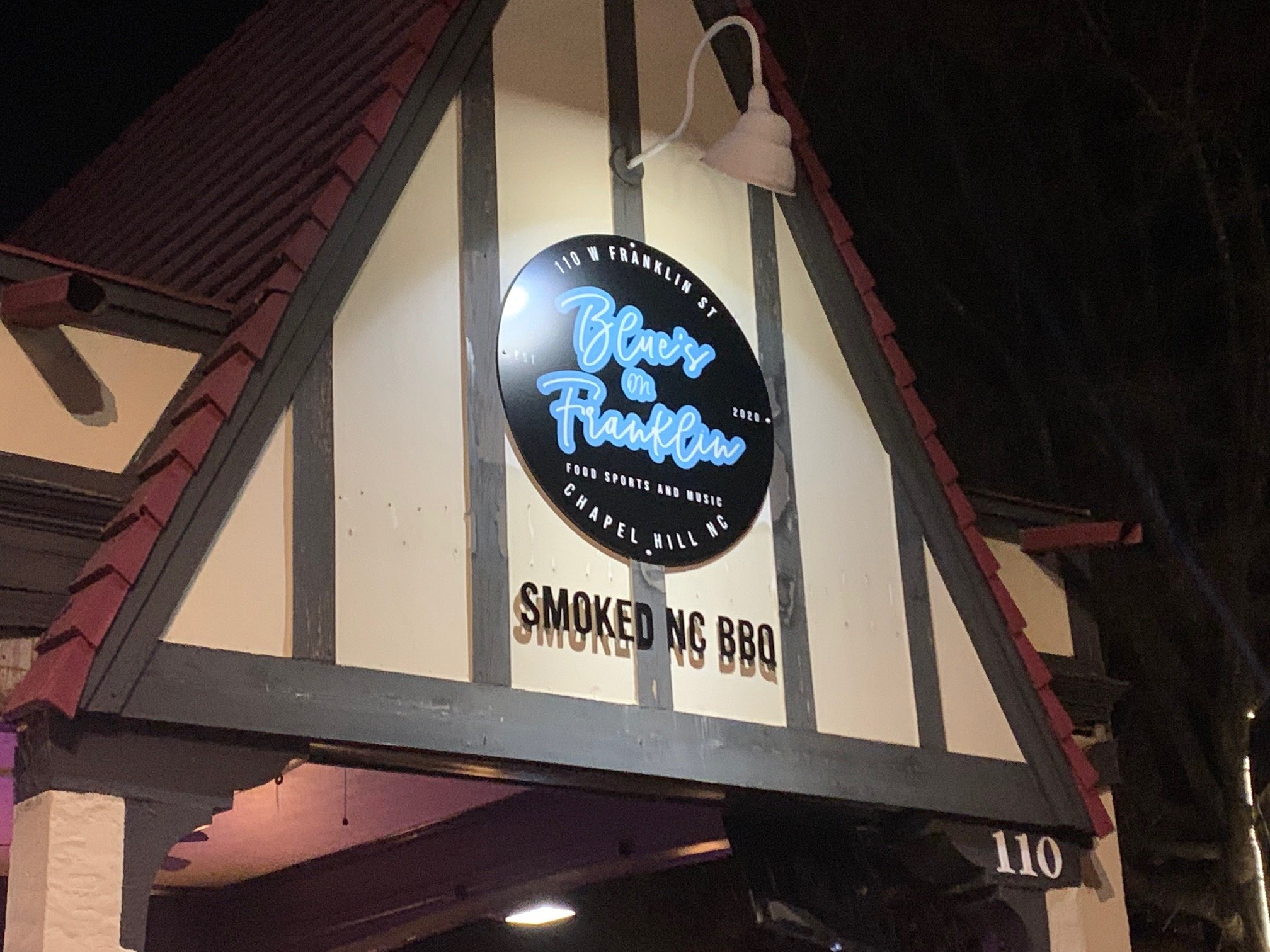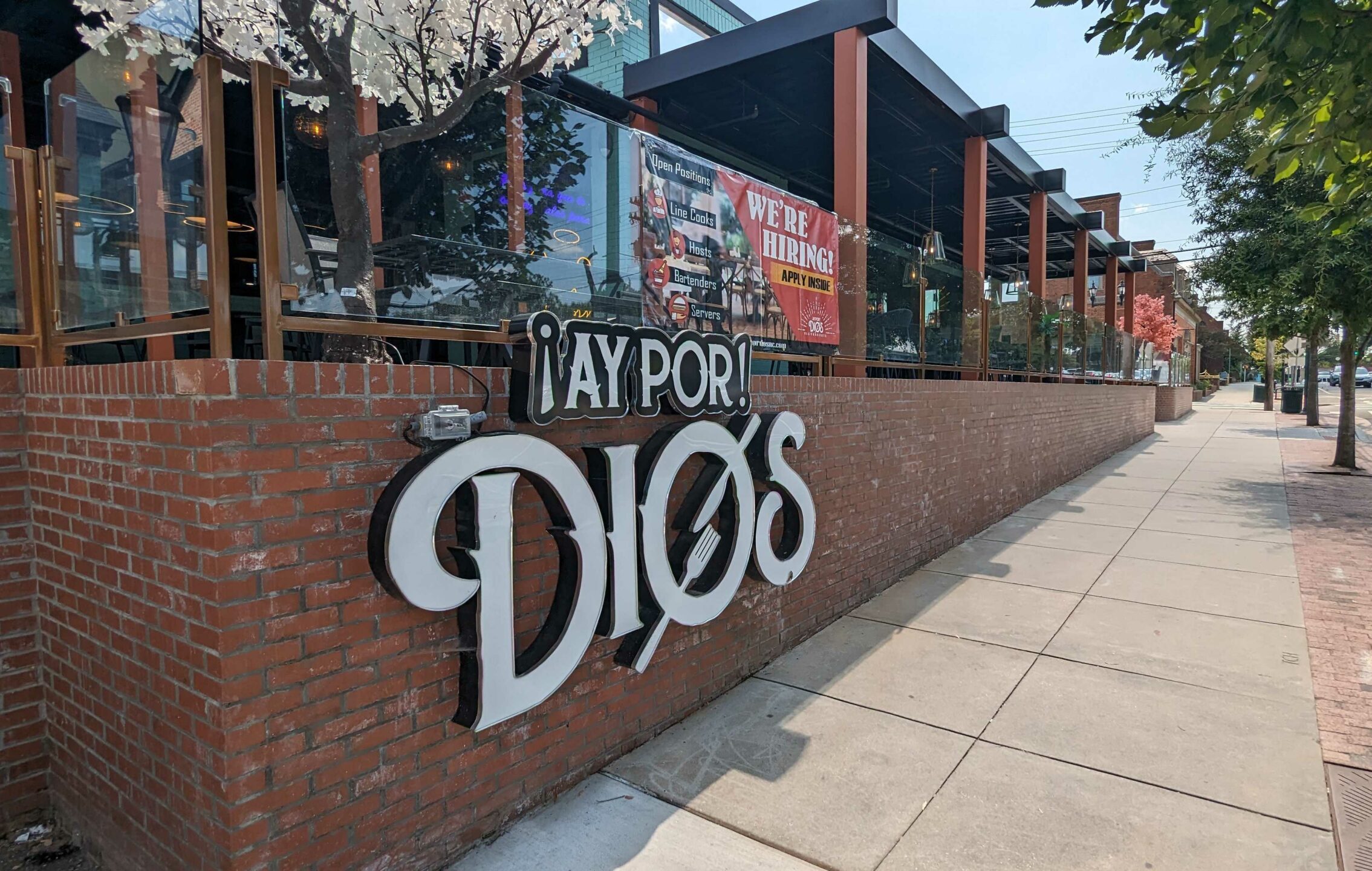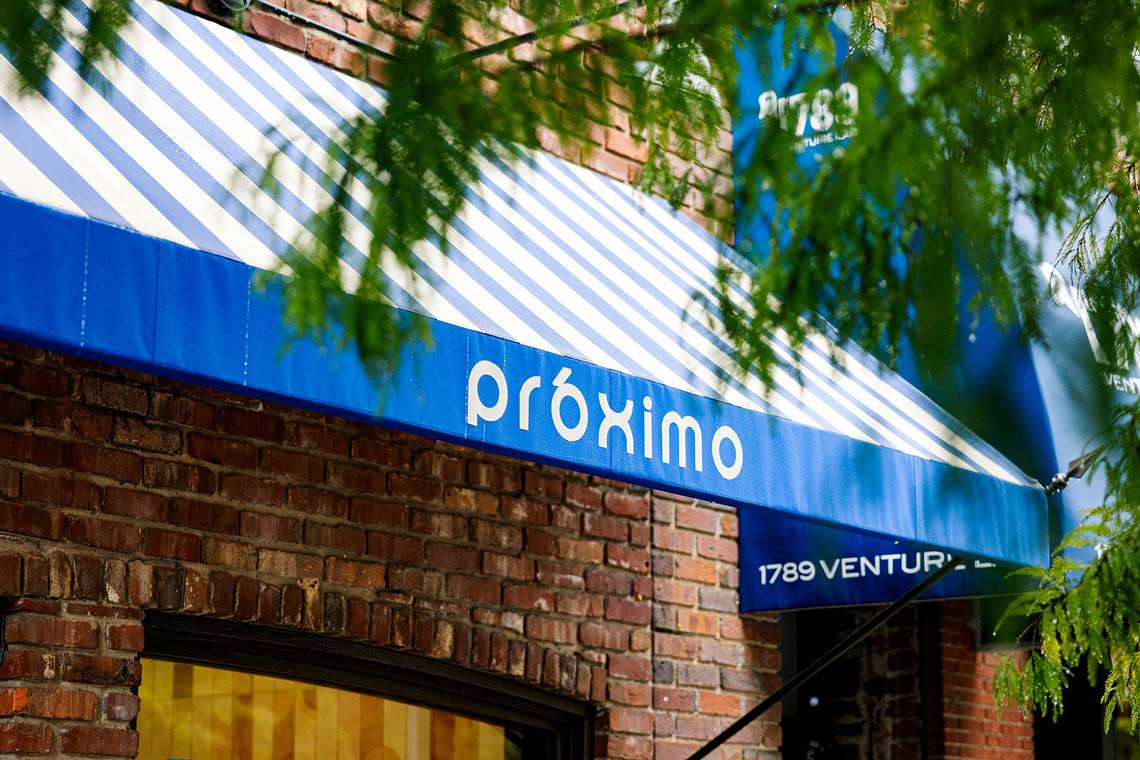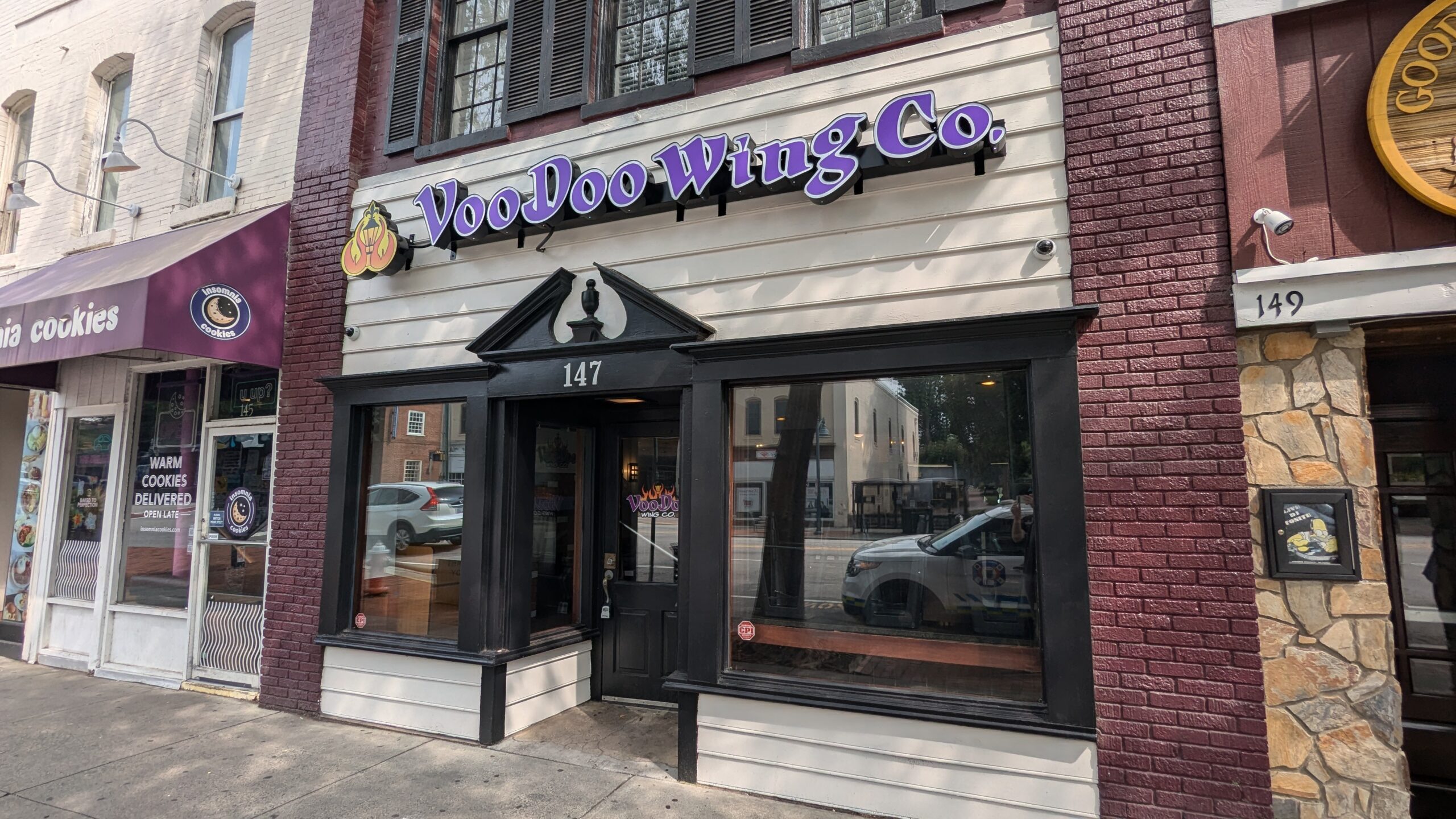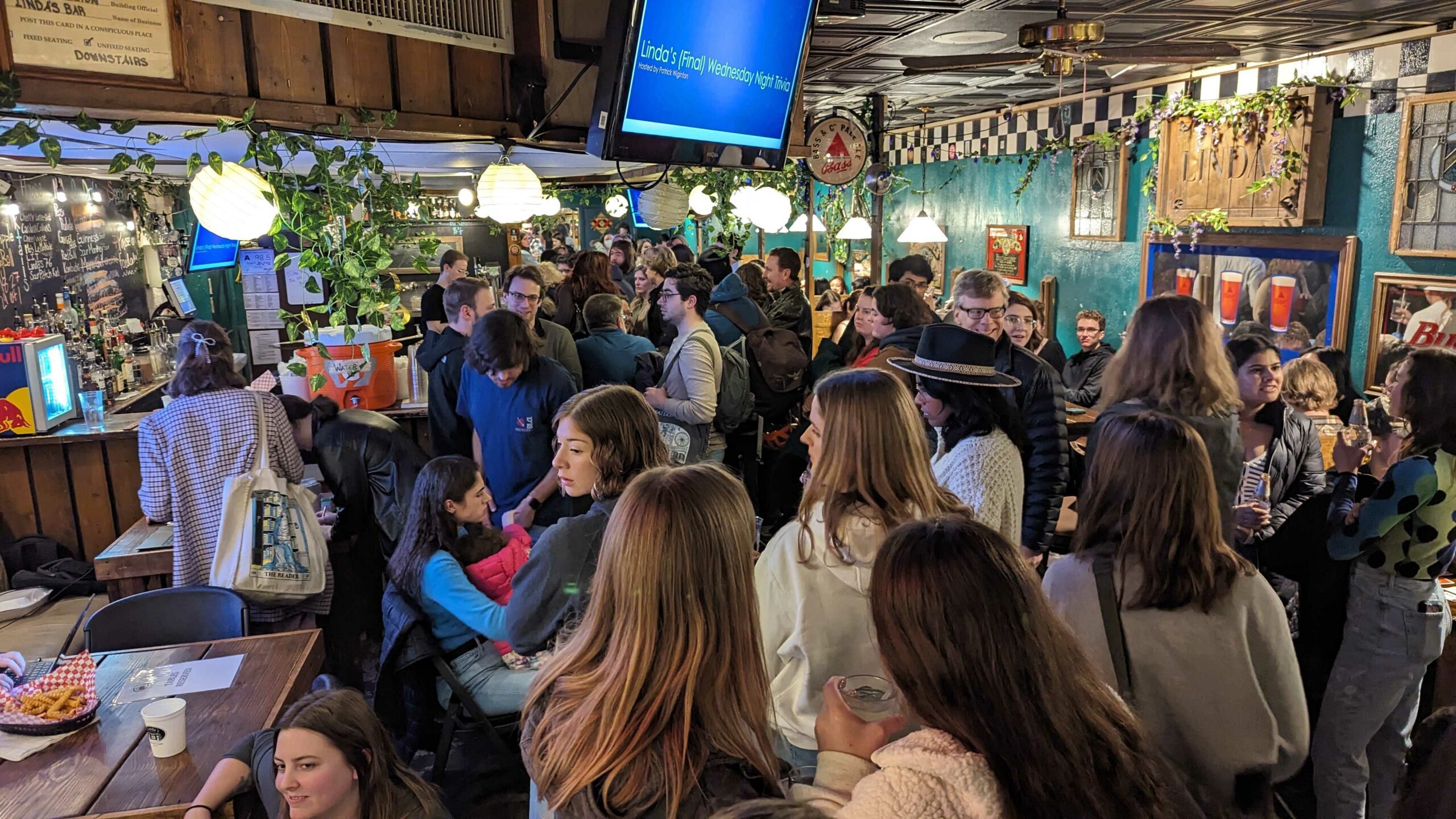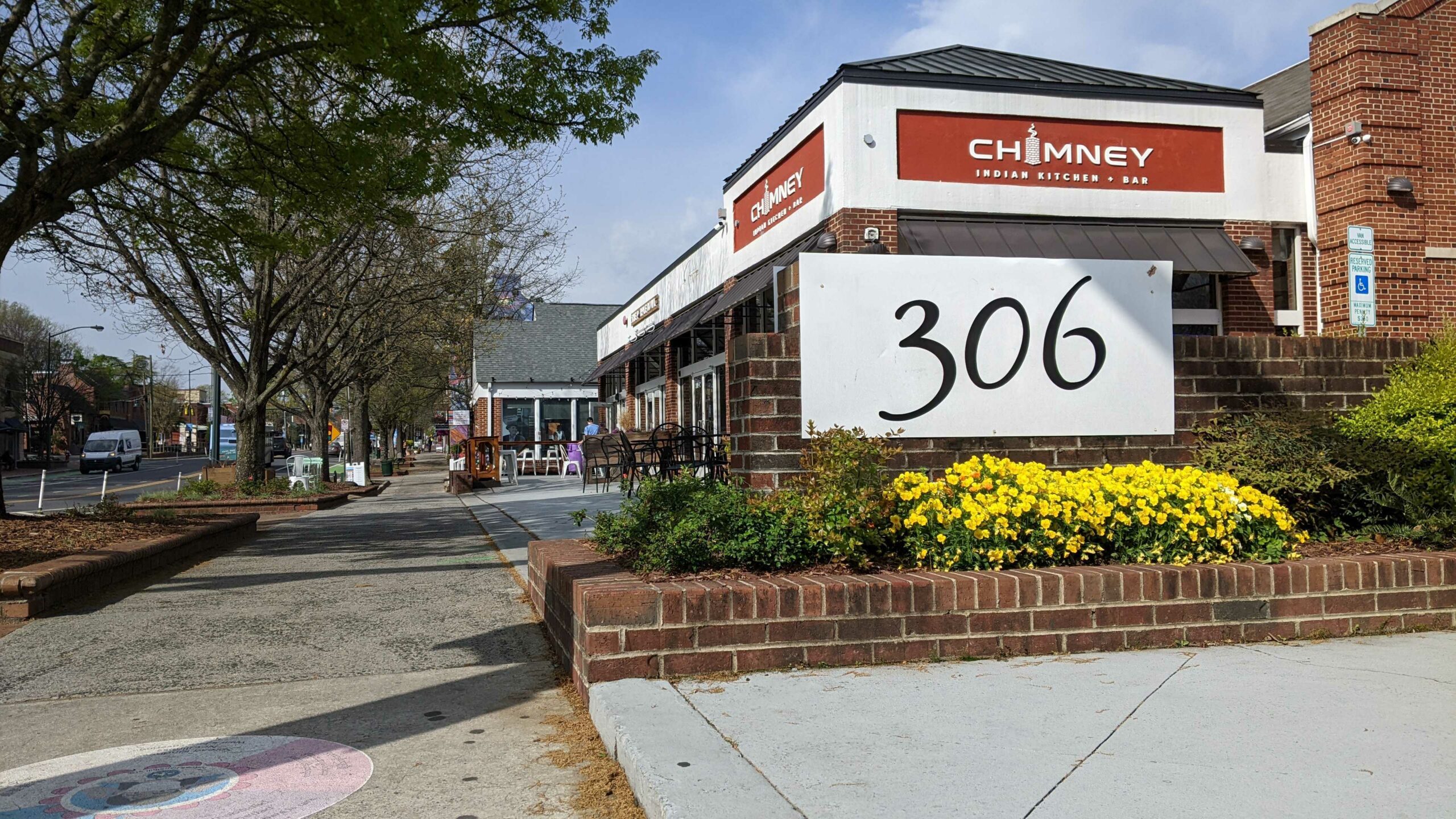When first announced, the plans for redevelopment at 306 West Franklin Street caught a lot of attention in Chapel Hill. Some of that stemmed from the possibility of new lab space for research companies, while other comments were about changing the town’s skyline. But some of the comments were about the future of the businesses operating within the current space.
The Purple Bowl opened in Suite 306B on West Franklin Street in 2017. Since then, co-owner Paula Gilland says the açaí bowl shop has picked up significant popularity with UNC students, athletics departments, and several other community sectors. While she and her family expanded into the space next door last year, Gilland said she’s never had any thought of relocating.
“We really like where we are,” she said. “We don’t want to move at all.”
When the Chapel Hill building was on the market in early 2022, Gilland says her family tried to buy the entire space. Ultimately, it was sold to life sciences developer Longfellow Real Estate Partners – and Purple Bowl learned of its plans in October to construct a wet lab and office facility.
Since then, the Gillands have called for community members to share their support of Purple Bowl, which resulted in hundreds of emails to Chapel Hill officials. At the presentation of the project’s latest concept plans last Wednesday, several people — including Paula Gilland — shared those same thoughts with the town council.
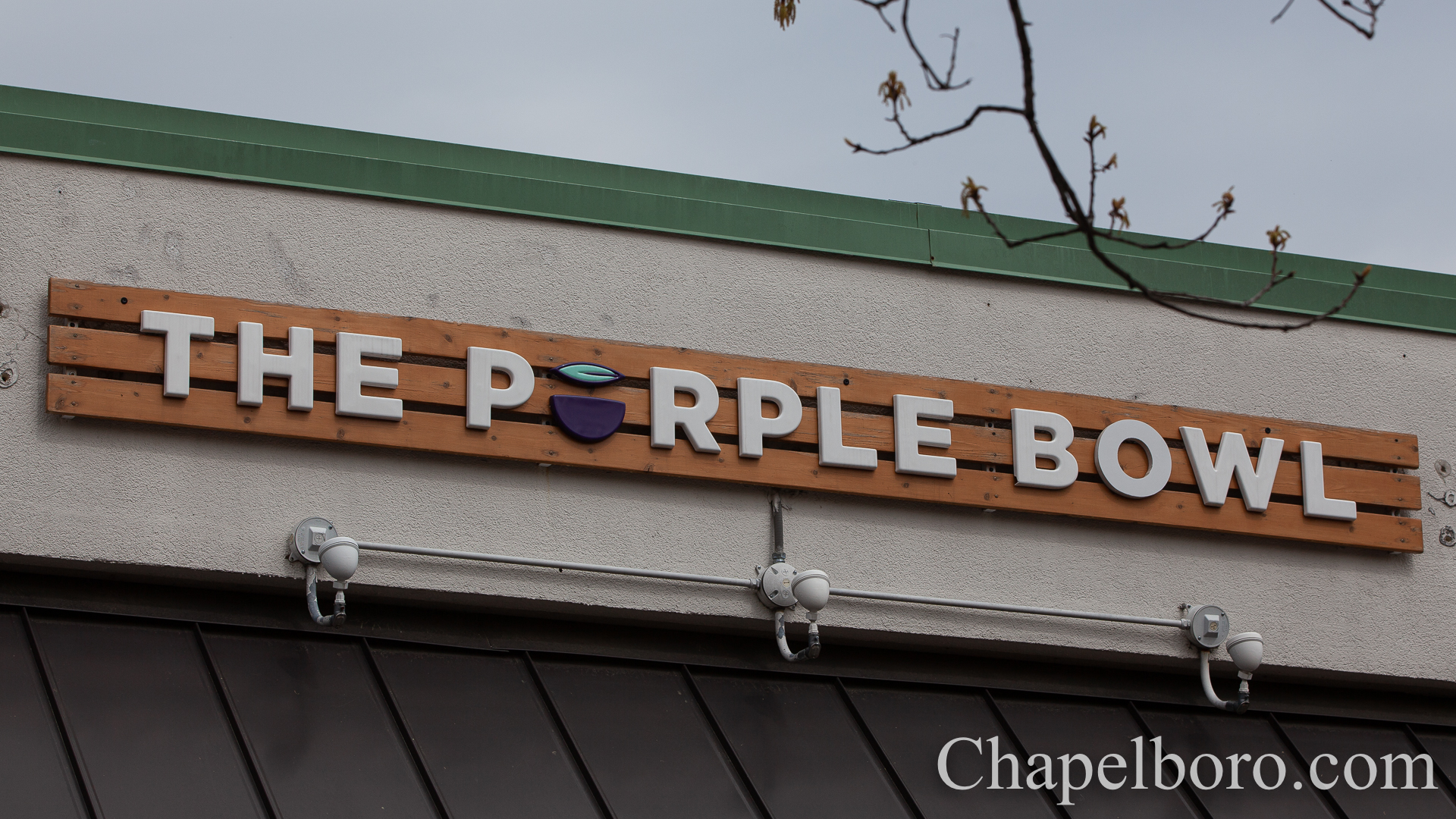
The Purple Bowl isn’t the only business in 306 West Franklin — Gilland is quick to point out that Bella Nail Bar and Chimney Indian Kitchen + Bar are other local businesses that could face relocation or closure.
Gilland said based on the level of communication with the Purple Bowl’s new landlords, and the current plans presented, there may not be a way forward in the same space. She said her restaurant would have to close during construction of the new, potentially nine-story building, or would have to relocate.
“One of the things that’s really concerning for us is when you’ve built a [customer] community like this, it’s very fragile to move it,” says Gilland. “It’s not as easy as one might think – you can move refrigerators and tables. But can you move the folks going [to your store] with you? Can you create a space that invites the community in the way this space has? I’m nervous about that.”
With its current early concepts, Longfellow says it plans to have first-floor retail space for small businesses (including food and beverage), office space, green space and a courtyard, parking, and penthouse space in addition to the wet lab facilities it’s known for building.
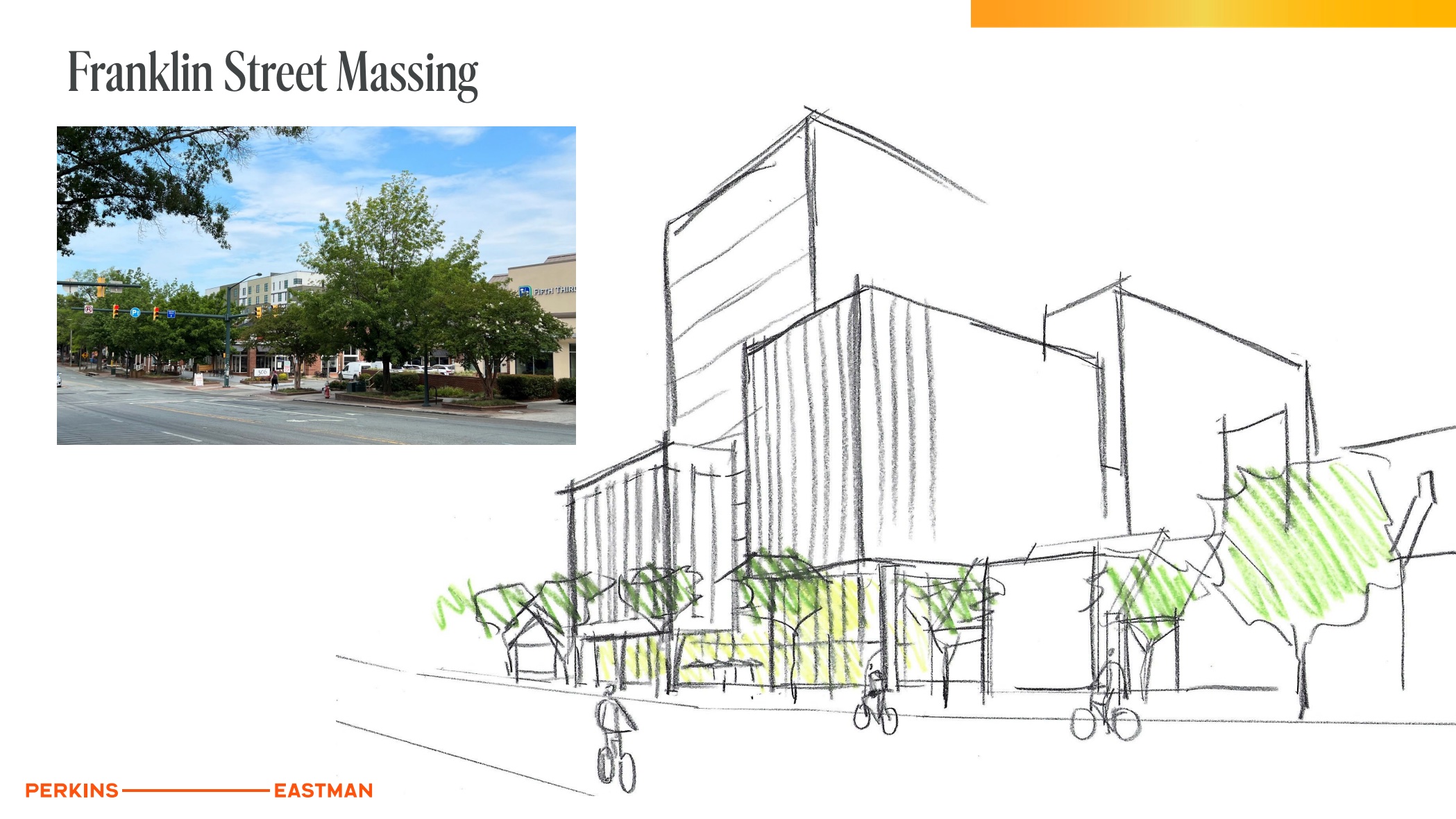
A concept sketch presented by Longfellow Real Estate Partners to the Chapel Hill Town Council of how redevelopment of 306 West Franklin Street could look from the other side of Franklin. (Photo via Perkins Eastman/Longfellow.)
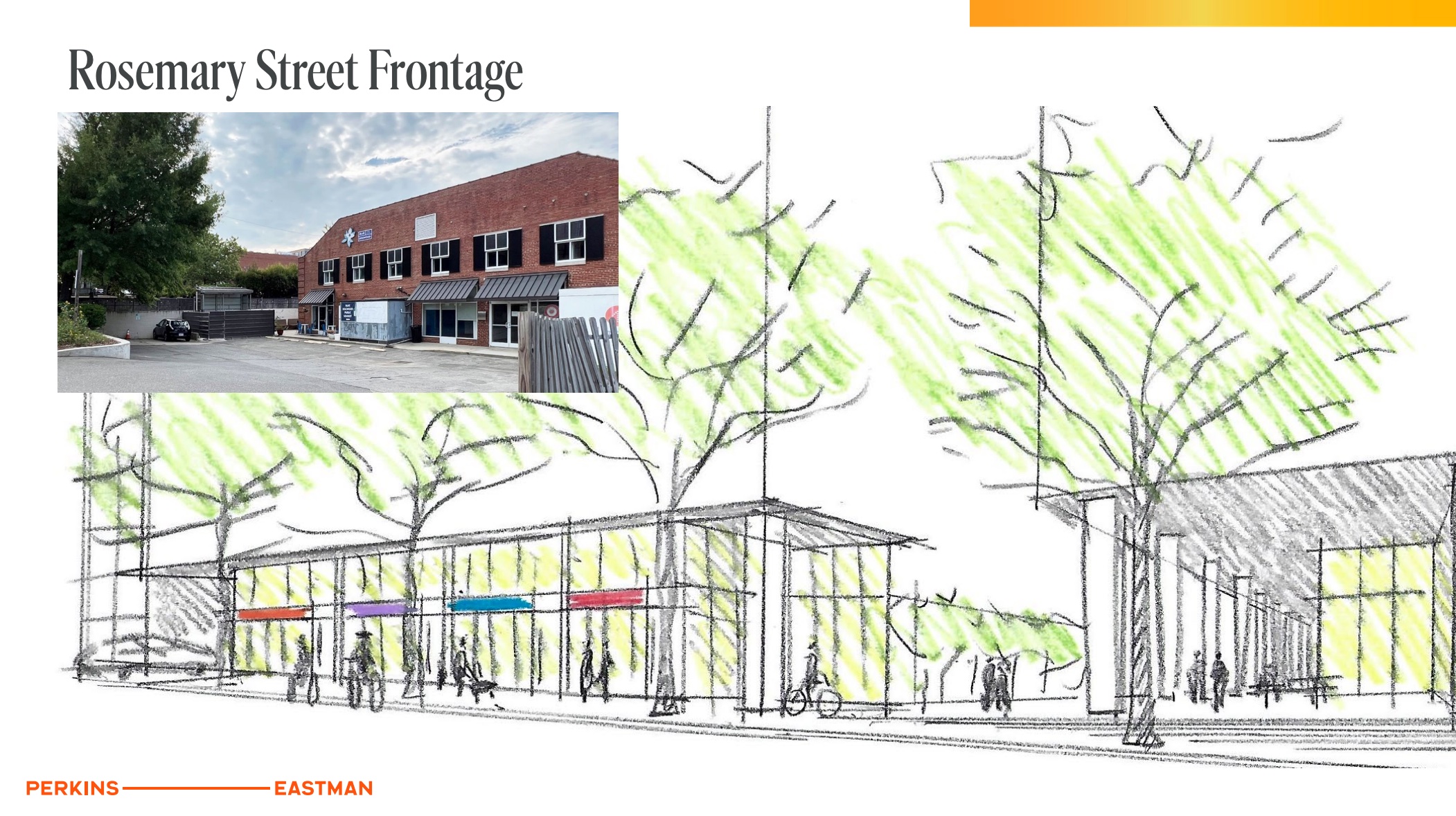
A concept sketch presented by Longfellow Real Estate Partners to the Chapel Hill Town Council of how redevelopment of 306 West Franklin Street could look from Rosemary Street. (Photo via Perkins Eastman/Longfellow.)
To improve Longfellow’s preparation for an application, the town council shared initial reactions to the plans Wednesday night. Some council members shared concerns of the size of the facility, the inclusion of an above-ground parking deck, and the need to be conscious of the nearby Northside neighborhood.
Many also stressed the importance of maintaining the chance for small businesses to thrive on Franklin Street – which Longfellow Managing Director Greg Capps agreed with during an interview with 97.9 The Hill.
Capps said his company is beginning talks with the existing tenants, and future discussions may include maintaining space at 306 West Franklin, finding a new home, or “anything in-between.”
“Making sure that [the current businesses] are treated and taken care of is hugely important to us,” said Capps. “Whether they choose to be – or are interested in being – a part of the new development, we want to do everything we can to see them succeed.”
Longfellow is currently in talks with other owners of parcels around their building, with some architects even including the Bike Chain store as part of the development area in plans presented Wednesday night. Capps said he is unable to discuss details of ongoing negotiations. But he added that it reflects how early this stage is for Longfellow’s vision of redevelopment – which affects what can be shared with Chapel Hill and the current 306 West Franklin tenants. He said more communication and engagement with those nearby will happen as Longfellow better forms its application to the town.
“[For now],” said Capps, “there’s an element of that [communication] where there’s inherent uncertainty just because we are so early on in the process.”
At the moment, Capps said there is no expectation to fast-track Longfellow’s Chapel Hill project, and it plans to go through the “normal entitlement process” with the town government. That means no drastic changes to the site would start for several years.
In the meantime, Capps said Wednesday’s suggestions from the town council, and public comments from community members, will be weighed.
“The feedback is welcome,” he said. “We’re taking it all to heart, knowing that there is definitely some demand from a life science and a world-class lab perspective, that I think Chapel Hill is missing out on and I think could benefit greatly from.”
Gilland says she shares many of the same concerns as the council members expressed Wednesday about the size of the project, describing it as an issue from a resident perspective instead of a tenant. While any sort of redevelopment would be different from the building’s current bones that still resemble the 1920’s Fowler’s Food Store, she says there is concern of how the scale would affect sunshine and shade for visitors to the block of Franklin Street.
Beyond aesthetics, Gilland also says she’s worried about the chances of it being good business. The Purple Bowl owner says she hopes the future life sciences space can be filled, since there’s similar development planned just down the street.
“We have a big wet lab space coming on East Rosemary Street that has been approved and that will change downtown,” she says. “If that is absorbed and in five to ten years that it’s a project that works, then move forward and say ‘Okay, we need more wet lab space and a nine-story building.’ But right now, we haven’t proven that’s what we’re able to accommodate.”
Dwight Bassett, the Town of Chapel Hill’s economic development director, says studies indicate otherwise. With just 13 percent of jobs in Chapel Hill being held by residents, he says updates to the job market and available workforce are necessary. With UNC being the space where many start-up companies and research enterprises are born, the town is making a concerted effort to keep those businesses here instead of down the road in Durham or the Research Triangle Park.
“Our best opportunity is probably in life science and technology,” said Bassett. “We hired Ernst & Young Consulting to do a ReVive Recovery plan several years ago and they gave us sectors they felt we could be most competitive in. The things we are pursuing are those categories. Because there’s so much depth of research on UNC’s campus, simply retaining that work that begins here is quite huge.”
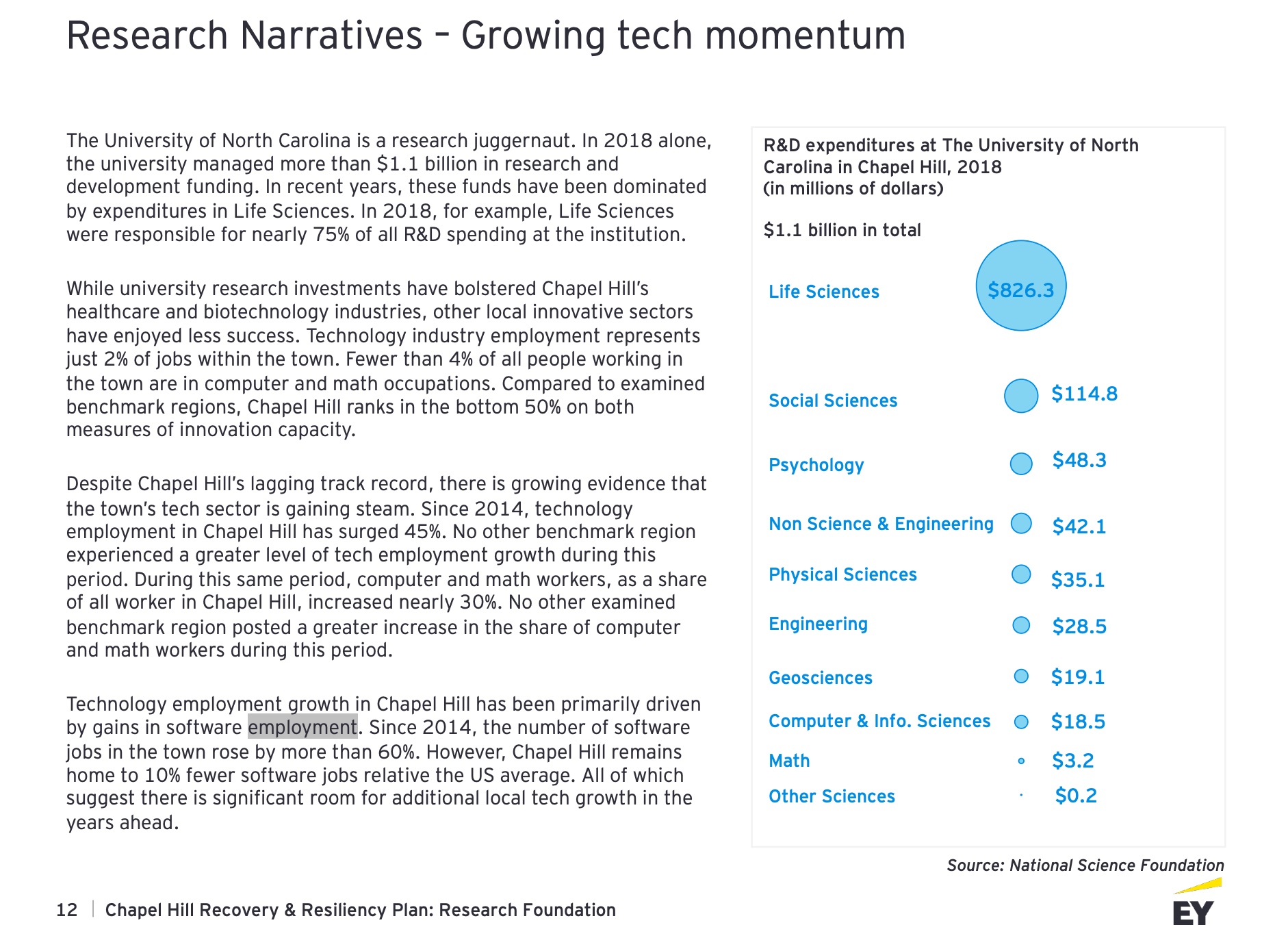
A portion of the ReVive research report shared with the Town of Chapel Hill in 2020. (Photo via Ernst & Young.)
While the initial stages of redevelopment on East Rosemary are progressing, Bassett says the town government is not staking its plans for diversity of business on “just one building.”
“If we want all those local businesses downtown to thrive [in addition to larger ones],” he says, “then we need to provide the market support that can survive by having customers available for their store 12 months out of the year and not just nine months out of the year.”
The Purple Bowl is going to continue serving up its fruit bowls and smoothies, Gilland says, despite its future being unclear. She says she plans to continue trying to communicate her hopes for downtown with both Longfellow and the Town of Chapel Hill.
“We should all work together to figure out what’s best for Franklin Street,” she adds. “I’m one voice, but I do feel like I’m representing my workers and my community here. I do think we want small businesses to thrive on Franklin Street, and so we do have to figure out ways to do that.”
Chapelboro.com does not charge subscription fees, and you can directly support our efforts in local journalism here. Want more of what you see on Chapelboro? Let us bring free local news and community information to you by signing up for our biweekly newsletter.

